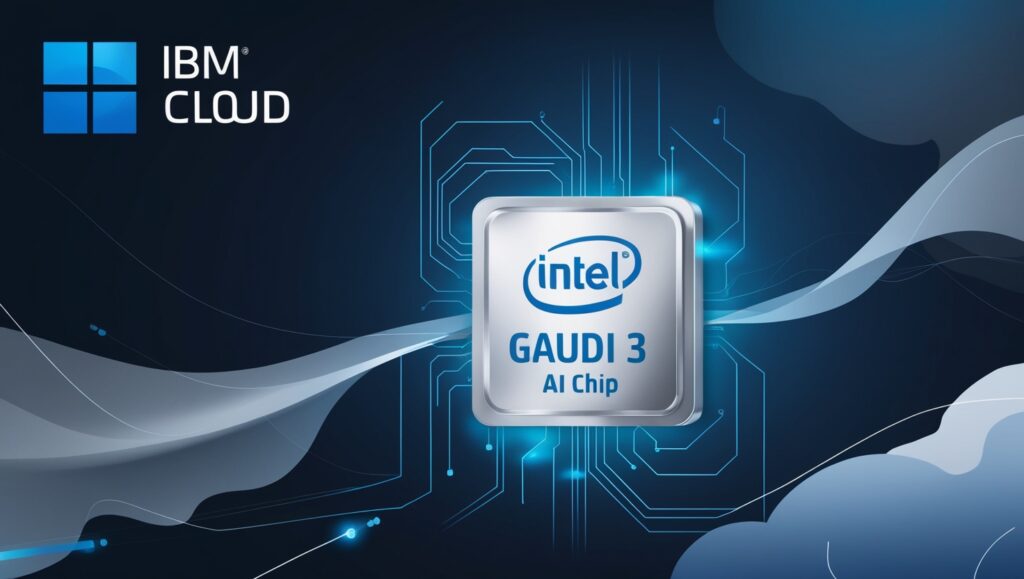With the Gaudi 3 AI accelerator chip, Intel has found its first cloud client: IBM Cloud.
On Thursday, IBM and Intel announced that IBM Cloud will start providing Gaudi 3 to clients early next year. The accelerators on the chip will be compatible with on-premises and hybrid systems, and IBM has announced that it will integrate Gaudi 3 support into its Watsonx AI and data platform.
Justin Hotard, general manager of Intel’s data center and AI division, stated in a statement that in order to fully realize the potential of AI, there needs to be an open and cooperative ecosystem that offers customers options and easily accessible solutions. They are developing new AI capabilities and satisfying customer demand for reasonably priced, safe, and cutting-edge AI computing solutions by fusing Xeon CPUs and Gaudi 3 AI accelerators with IBM Cloud.
The Gaudi 3 was intended to be Intel’s answer to rival Nvidia and AMD’s AI chips when it was unveiled in December 2023. With Intel’s $2 billion acquisition of Habana Labs in 2019, the Gaudi series of accelerators has come to an end.
Gaudi 3 reference designs, which partners like Lenovo, Dell, HPE, and Super Micro could use in servers, were unveiled by Intel earlier this year. One of the new Ethernet connectivity types included in the designs is meant to rival Nvidia’s InfiniBand technology. Additionally, they combine Gaudi 3 chips with the Intel Xeon 6 processor family.
However, Gaudi 3 arrived at a critical time for Intel, which has been severely by disadvantaged Nvidia’s dominance.
Intel stated in April that it anticipated making $500 million from Gaudi 3 in 2024. This is a pitiful amount in comparison to the $4.5 billion AMD anticipates from the sale of its Instinct MI300-series GPUs and the $40 billion Nvidia anticipates from its data center business. Early benchmarks demonstrate that Gaudi 3 offers remarkably high performance per dollar, but acquiring users who already have close ties to Nvidia is proving to be difficult.
With optimism, Intel CTO Greg Lavender stated in July that the company might overtake Nvidia as the market leader in AI chips. After reporting a $1.6 billion Q2 loss, Intel announced a month later that it would cut costs aggressively and lay off 15,000 jobs in order to save $10 billion by 2025.
Nvidia plans to increase production of Blackwell, its next-generation AI chip, in Q4 following a brief manufacturing delay, which will only worsen the situation for Intel. Gaudi 3 compares favorably to the H100, which Blackwell will offer up to four times the performance of.
Since Blackwell chips aren’t yet available to the general public, Intel has made a point of not drawing comparisons between the two.








